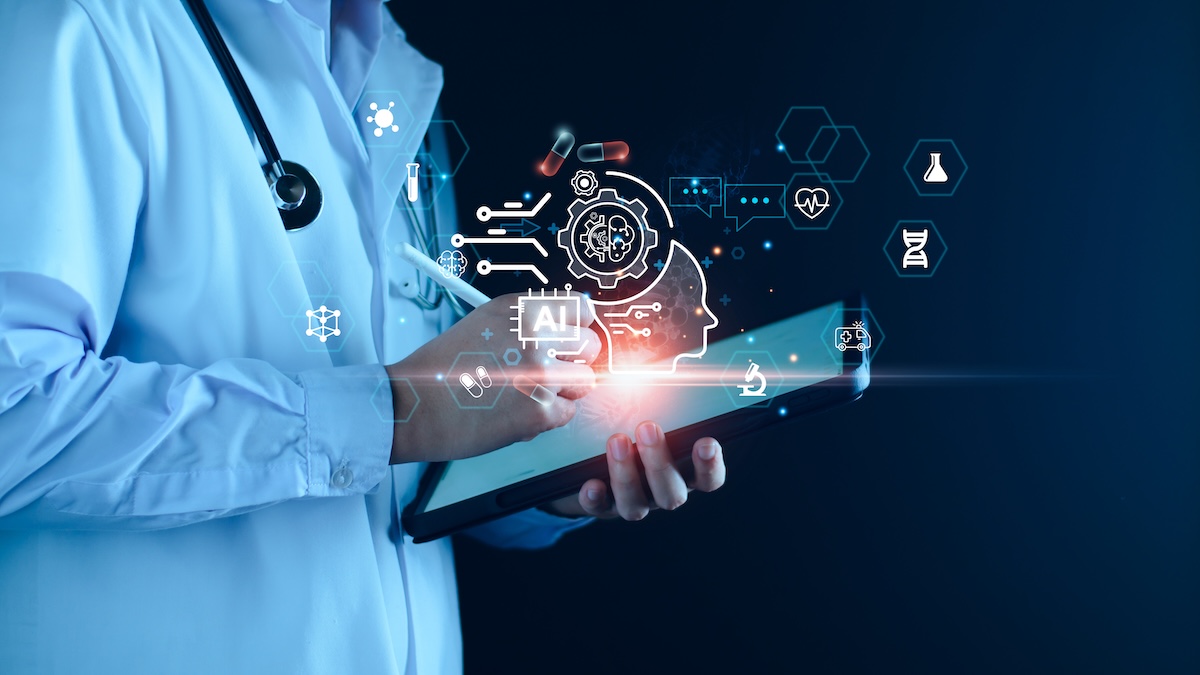Using Patient Education Videos to Support Preventive Care Strategies
As a healthcare provider, you know prevention saves lives. From routine screenings and lifestyle counseling to vaccinations and early detection,...
6 min read
Robert McDermott Aug 1, 2024 1:23:00 PM

Recent healthcare cyber attacks have highlighted the importance of not just technology in healthcare but also software. A good number of remaining concerns relate to the outdated and legacy healthcare software and technology in use. Not only can failing to update hardware create issues, but not tapping into modern healthcare software means you may be missing out on efficiencies, cost-savings, improved patient experience, and more.
Quick Links:
There are few industries and professions in the modern world that function without software. In healthcare, software plays a pivotal role in enhancing the efficiency and effectiveness of healthcare practices and administration. For our purposes, we’ll focus on the three main pieces of software employed by healthcare practices; however, it’s worth mentioning that telehealth platforms are, for many practices, a fundamental aspect of their patient services and care.
From improving patient care and streamlining operations to ensuring regulatory compliance, wider software adoption has, without a doubt, changed the way providers use technology outside the exam room.
One of the most profound changes in the healthcare landscape was the introduction of EHR systems. They have quickly become the backbone of modern healthcare practices, digitizing patient records, enabling quick and easy access to patient histories, lab results, and treatment plans.
EHRs facilitate better coordination among healthcare providers, reducing the likelihood of errors, and enhancing the overall quality of care. They also support decision-making with built-in clinical guidelines and alerts, as we see with ePrescription solutions, ensuring providers adhere to best practices and up-to-date protocols.
While EHRs help manage patients, practice management software helps manage the administrative aspects of running a healthcare practice. From scheduling and billing to other administrative tasks, practice management systems can reduce administrative burdens allowing staff to focus more on patient care.
Automating administrative processes improves efficiency, reduces errors, especially when it comes to prescribing and claim denials. Similarly, it speeds up reimbursement cycles improving cash flow for your practice. Integration with EHR systems further streamlines workflows, ensuring that patient data flows seamlessly between clinical and administrative functions.
And, finally, no business is complete without software that helps manage financial health and revenue cycles. For healthcare practices, administering patient accounts, from initial appointment scheduling to the final payment of a balance, can be time consuming. RCM systems can help automate billing processes, manage claims, and ensure compliance with healthcare regulations. Optimizing the revenue cycle, helps practices maintain financial stability and focus on delivering high-quality patient care.
In short, the software choices made by healthcare organizations, while supporting both clinical and administrative functions, should also enhance patient care, streamline operations, and ensure compliance with HIPAA and other regulations.
Up until even a decade ago, many healthcare providers relied heavily on paper records and manual processes, from records to prescribing. Unfortunately, manual processes, even data entry, are prone to errors, inefficiencies, and delays.
But, software has been making an impact on healthcare since way before then, starting in the 1960s and 1970s, when it was used for basic administrative software for billing and scheduling.
The 1980s and 1990s saw the introduction of EHR systems, which began to digitize patient records. Sadly, early EHR systems were often cumbersome and severely limited in functionality (think minimal interoperability and collaboration), but they laid the groundwork for future advancements.
In the 2000s, the rise of the internet heralded significant improvements in healthcare software, making it more user-friendly, interoperable, and capable of integrating various aspects of patient care and administrative tasks.
More recently, healthcare software has evolved at an unprecedented pace, driven by the need for greater efficiency, better patient outcomes, and enhanced data security. Modern EHR systems are now cloud-based, enabling real-time access to patient information from anywhere.
Similarly, they’re integrated with practice management systems, ePrescribing applications, telehealth platforms, and more. This helps create a seamless ecosystem that supports both clinical and administrative functions.
And now, we’re seeing the introduction of both AI and machine learning. AI-powered tools can assist in both administrative tasks as well as diagnostic processes, helping to predict patient outcomes and personalize treatment plans. Further, machine learning algorithms analyze vast amounts of data to uncover patterns and insights that inform clinical decisions and operational strategies.
 Common Healthcare Software Challenges
Common Healthcare Software ChallengesWhile healthcare software has revolutionized the industry, it also presents several challenges that healthcare practices and administrators must navigate. These challenges, if not properly addressed, can hinder the effectiveness and efficiency of healthcare delivery.
Working with software providers who can help you address these common challenges is essential. It requires a proactive and strategic approach that, hopefully, began in the design process.
Healthcare software must prioritize data security while fostering interoperability so healthcare practices can leverage their full potential.
 The Essential Role of Healthcare Software in Practice Success
The Essential Role of Healthcare Software in Practice SuccessDigital tools are more than a convenience; they are essential components driving the efficiency, accuracy, and quality of patient care. From streamlining administrative tasks to enhancing clinical workflows, healthcare software plays a pivotal role in ensuring that practices operate smoothly and deliver exceptional care.
The benefits of good practice software tools, however, extend beyond operational efficiency. Using healthcare software offers a multitude of benefits that enhance both the clinical and administrative aspects of healthcare practices. Some of the key benefits include:
These significant benefits enable healthcare practices to improve patient outcomes, enhance operational efficiency, and achieve greater financial stability, ultimately contributing to the overall success and sustainability of the practice.
Ready to see the healthcare workflow platform that lets you leverage all of these benefits (and more) while keeping the practice management software you love? Book a demo with iCoreConnect today and let’s get started.

As a healthcare provider, you know prevention saves lives. From routine screenings and lifestyle counseling to vaccinations and early detection,...

There’s no denying that the AI boom is here. The American Medical Association reports that 66% of physicians are currently using artificial...

If only managing your practice’s revenue cycle came with a crystal ball. You could spot claim denials before they happen, predict when patients might...

ePrescribing software is no longer the new kid on the healthcare efficiency block. Though we’re seeing greater adoption, in part due to regulations...

When it comes to healthcare practices, we may not think of applying customer service best practices. However, shifting to patient-focused care means...

What keeps you from digging into the numbers and analytics at your practice on a regular basis? We all know the data can help grow business, but we...